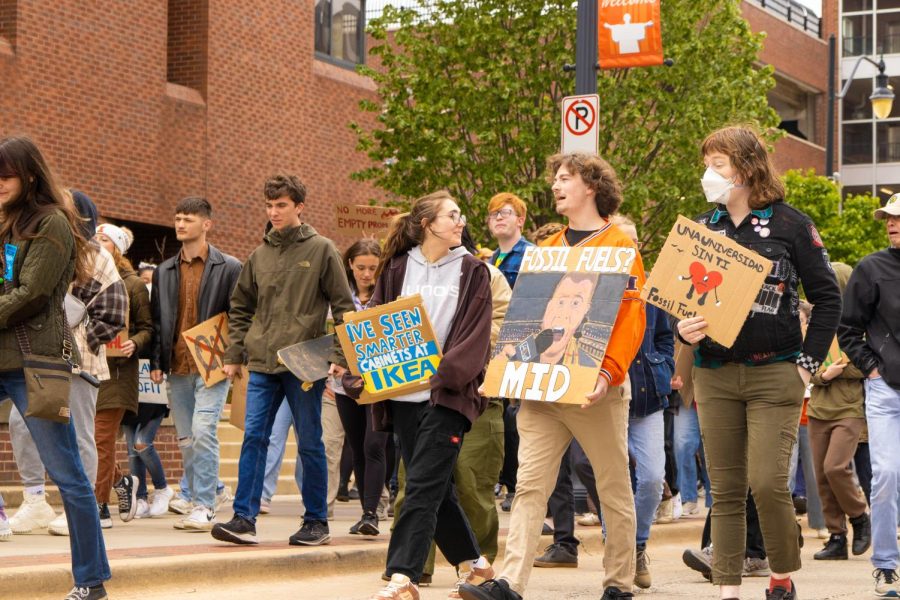SECS hosts climate strike, calls for UI to divest in fossil fuels
Students for Environmental Concerns marched beginning at Alma Mater calling for the University to divest in fossil fuels.
Apr 24, 2023
Last updated on Aug. 23, 2023 at 01:38 p.m.
On Sunday, dozens of people gathered around Alma Mater to protest the University’s investment in fossil fuels. The Students for Environmental Concerns hosted the climate march.
The crowd was dressed in orange clothing, symbolizing their unity toward the cause. Different painted signs scattered the ground for protesters to hold throughout their march on Sunday at noon.
The march started at Alma Mater and went through Green Street and the Main Quad. Protesters chanted “No more coal, no more oil, keep that carbon in our soil!” while following a vibrant orange banner with the words “Divest from fossil fuels.”
Get The Daily Illini in your inbox!
Gabriel Kosmacher, president of SECS, said that the main goal of today was to bring awareness to the University’s involvement in fossil fuels.
“Speaking with a lot of students on campus, people aren’t aware of these investments or the negative impacts they have,” Kosmacher said. “We would like for the chancellor to bring forward an official plan to divest from petroleum and natural gas.”
Kosmacher said the University has $110 million invested in fossil funds through public funds and $120 million in private funds, for a total of around $230 million.
Kosmacher noted that the private fund statistic came from a statement from the chancellor in 2019, while the public funding came from SECS students researching the published data.
The climate strike ended a week’s worth of activities hosted by SECS. The group hung flyers for Earth Week around campus to advertise their events.
Rudy LaFave, the action coordinator for SECS, organized the semi-annual strike. According to him, word of mouth played a key role in gathering support for the event.
“I believe this is an opportunity for the entire sustainability side of campus to come together,” LaFave said. “This is an issue that involves us all, and (the strike) is a great way to reach that.”
The strikes every semester serve to make long-term progress, LaFave said. By repeatedly bringing energy, he hopes that a light will be shone on this movement on campus.
“We have made progress, and it’s largely because of a consistent community show out of support in something like this,” LaFave said.






